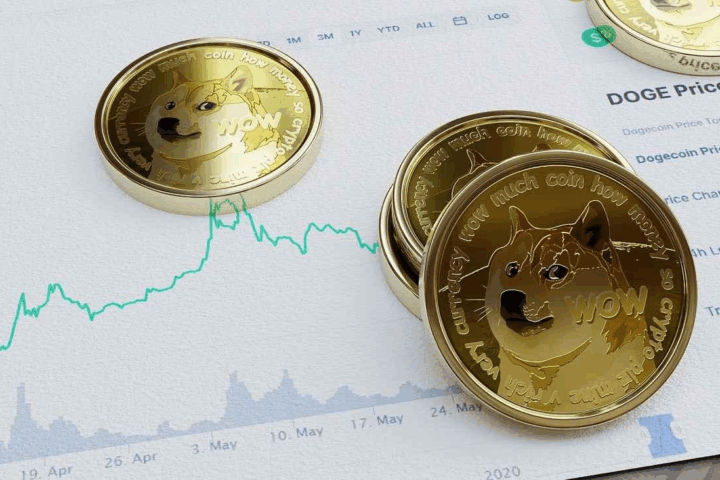Today, video games are not something only those super into technology enjoy all the time. They have become one of the most popular leisure activities, and can easily get labelled as the entertainment genre of the 21st century. Per Statista, this sector is expected to pull in $522 billion in global annual revenues this year and is on track to rake in $733 billion yearly by 2030. Approximately 3.2 billion people on our planet actively partake in gaming fun, with 1.5 billion based across the Asia Pacific region.
In recent years, a new type of game has entered this sphere, open-world-like titles that have their own economies. These thriving ecosystems, usually powered by blockchain tech, have spawned complex microeconomies.
Even though presented to the general public as something innovative, the reality is that they are nothing new. Second Life, a 2003 multiplayer virtual world that garnered a lot of press at the start of the 2010s, had/has many similar features to these, including an internal economy powered by the Linden dollar. That is a token named after the gaming software developer, Linden Lab. Second Life, at one time, had an active user count of close to a million people.
In the post-2020 era, virtual multiplayer universes have become all the rage, giving rise to complicated trade systems. They have economies that mirror real-world ones and even let gamers own or lease pieces of digital real estate. Below, we get more into this topic, explaining the unique appeals these games offer.
How In-Game Economies Work
The in-game currency is at the heart of each one, a distinct digital asset. It holds a tangible value for players but can usually be exchanged or purchased off-platform. It is vital to note that for the more modern virtual shared spaces, now known as metaverses, these assets are usually blockchain-based. Without question, crypto technology has supercharged microeconomies by introducing decentralized ownership and verifiable scarcity.
For example, one of the most popular Second Life-style crypto worlds currently available, Decentraland, features a native fungible asset called MANA, which operates on the Ethereum blockchain. It can get used by Decentraland users to buy items limited to this digital environment, which are non-fungible tokens, more famously known as NFTs. For instance, a plot of land in Decentraland is an NFT, as is a bracelet for participation in this platform’s card gambling venue, ICE, which supplies betting action akin to what one may find in online poker tournaments.
MANA can get bought at popular crypto exchanges using other cryptos or fiat money, and then it can be used for trade within the Decentraland universe. Before metaverses, as we understand them now, got up and running, massive multiplayer online games like RuneScape too had their in-game currencies, and their economies operated on supply and demand, scarcity, and player-driven trade. In World of Warcraft, players trade gold for rare weapons or crafting materials, with some items fetching hundreds of dollars on real-world marketplaces. Hence, this made game developers of such titles focus on crafting intricate systems of this type they could insert in their large-scale games.
The Popularity of Play-to-Earn Models
For those not super deep into gaming, Play-to-Earn (P2E) is a somewhat new gaming model where players attain rewards through gameplay that has real-world value. These typically come in the form of cryptocurrencies or NFTs, and they get provided for things like winning battles, completing tasks, or trading. Examples of games that implement such schemes are Axie Infinity and The Sandbox. The latter is Decentraland’s top competitor, as it has many identical features to that virtual world.
In Axie Infinity, which has more customary game mechanics, players breed and trade Axies, digital creatures that are NFTs. During this game’s popularity peak in 2021, some individuals from developing nations were making okay daily incomes by developing Axies, making over $30 daily if they were super skilled in this.
Platforms like Discord and Reddit are renowned for hosting discussions on optimizing P2E strategies, which range from farming tokens to flipping NFTs. That said, P2E-based economies are not without flaws. They can have high entry costs and boast market volatility, and their developers have faced criticism for prioritizing profits over gameplay.
In-Game Marketplaces & Grinding
In-game marketplaces are platforms where players trade goods/services. Even famed mainstream titles like Fortnite have them, and they allow hardcore players to buy skins, emotes, or user-generated content, which they can get using in-game currencies like V-Bucks. These forms of in-game money often must be purchased with real cash, which creates a closed-loop economy where developers control supply. Yet, players are the ones who drive demand.
According to a new report, Roblox, a game-creation system, has fostered a new era of digital entrepreneurs, as between 2017 and 2023, it has generated $1.2 billion in revenues for its users, who can create digital items they can sell off. That is their grinding aspect, the labor element described above with Axies. Those willing to put in the time/effort into making something that others deem valuable can benefit from this, attaining something that has real-world value. That is why so many MMORPG players engage in things like gold farming. These activities let them sell in-game currency or items for real money.





